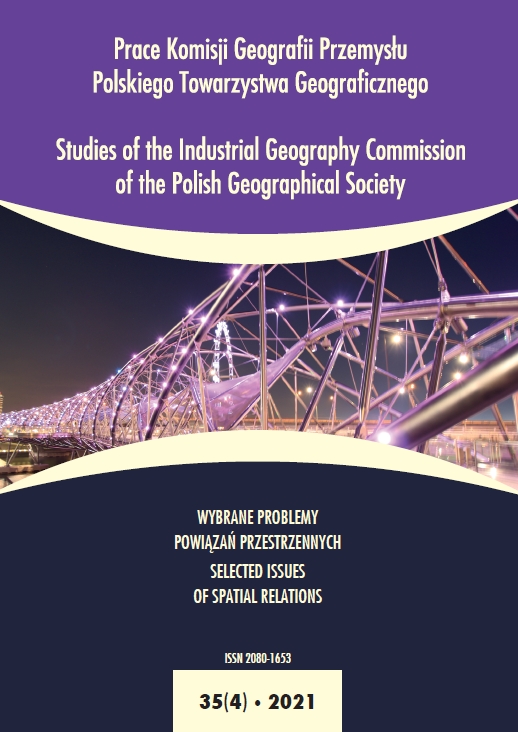Disclosure of climate-related issues in the non-financial reporting of WIG-oil&gas listed companies
DOI:
https://doi.org/10.24917/20801653.354.11Keywords:
climatic disclosures, environmental reporting, non-financial reporting, climateAbstract
Environmental reporting covers both issues related to the negative impact of the enterprise on the natural environment, but also the presentation of actions taken to protect it. Among the various ecological issues, climate is of particular interest. The aim of the article is to show the importance of information related to reporting on climate-related issues and their inclusion in the non-financial reporting of companies from the oil&gas sector listed on the Warsaw Stock Exchange. In the article, the author used the analysis of legal acts, literature on the subject and the study of empirical data from reports and websites of listed companies of the WIG-oil&gas index. The practice of oil&gas companies shows that companies listed on the capital market notice the importance of these issues both in terms of the impact of the climate on their operations and the impact of these entities on the climate. However, attempts to report climate-related issues are made by those entities only, that are required to disclose non-financial information. In view of the ongoing climate change and increasing environmental awareness, taking these issues into account seems inevitable.
Downloads
Metrics
References
Cieślak, I. (2014). Strategiczne narzędzia rachunkowości zarządczej. W: D. Dobija, M. Kucharczyk (red.), Rachunkowość zarządcza. Analiza i interpretacja. Warszawa: Wolters Kluwer SA, 787–837.
Climate Disclosure Standards Board. (2021). About the Climate Disclosure Standards Board. Pozyskano z https://www.cdsb.net/our-story (dostęp 18.03.2021).
Dyrektywa Parlamentu Europejskiego i Rady 2014/95/UE z dnia 22 października 2014 r. zmieniająca dyrektywę 2013/34/UE w odniesieniu do ujawniania informacji niefinansowych i informacji dotyczących różnorodności przez niektóre duże spółki oraz grupy. Pozyskano z https://eur-lex.europa.eu/legal-content/PL/TXT/PDF/?uri=CELEX:32014L0095&from=PL (dostęp 25.03.2021)
European Commission Directorate-General for Financial Stability, Financial Services and Capital Markets Union. (2019). Guidelines on reporting climate-related information. Bruksela: Unia Europejska. Pozyskano z https://ec.europa.eu/finance/docs/policy/190618-climate-related-information-reporting-guidelines_en.pdf (dostęp 18.03.2021).
Financial Stability Board. (2017). Recommendations of the Task Force on Climate-related Financial Disclosures. Pozyskano z https://assets.bbhub.io/company/sites/60/2020/10/FINAL2017-TCFD-Report-11052018.pdf (dostęp 18.03.2021).
IAASB. (2020). Alert pracowników dotyczący praktyki badania. Uwzględnienie ryzyka związanego z klimatem w badaniu sprawozdania finansowego. Rada Międzynarodowych Standardów Rewizji Finansowej i Usług Atestacyjnych. Pozyskano z https://www.pibr.org.pl/assets/meta/5563,IAASB%20Alert_The%20Consideration%20of%20Climate-Related%20Risks%20in%20an%20Audit%20of%20Financial%20Statement_PL.pdf (dostęp 25.03.2021).
Kamieniecka, M., Nóżka, A. (2016). Źródła i zakres raportów środowiskowych oraz ocena możliwości ich integracji ze sprawozdaniem finansowym. Studia Ekonomiczne. Uniwersytet Ekonomiczny w Katowicach, 284, 53–65.
Krajowy Standard Rachunkowości nr 9. (2018). Sprawozdanie z działalności. Dziennik Urzędowy Ministra Rozwoju i Finansów z dnia 9 stycznia 2018 r. poz. 4.
Macuda, M. (2015). Rachunkowość odpowiedzialności społecznej – raportowanie zagadnień środowiskowych. Studia Oeconomica Posnaniensa, 3(1), 97–111.
Młynarski, T. (2017). Bezpieczeństwo energetyczne i ochrona klimatu w drugiej dekadzie XXI wieku. Kraków: Wydawnictwo Uniwersytetu Jagiellońskiego.
Pawłowski, A. (2006). Wielowymiarowość rozwoju zrównoważonego. Problemy Ekorozwoju, 1, 23–32.
Szadziewska, A. (2013). Sprawozdawcze i zarządcze aspekty rachunkowości środowiskowej. Gdańsk: Wydawnictwo Uniwersytetu Gdańskiego.
Ustawa z dnia 29 września 1994 r. o rachunkowości, tekst jednolity Dz.U. z 2021 r. poz. 217.
Zubalewicz, A. (2005). Zadania rachunkowości w dziedzinie pomiaru rozwoju zrównoważonego. Ekonomia i Środowisko. Czasopismo Stowarzyszenia Ekonomistów Środowiska i Zasobów Naturalnych, 1(27), 115–124.
Downloads
Published
How to Cite
Issue
Section
License
Copyright (c) 2021 Studies of the Industrial Geography Commission of the Polish Geographical Society

This work is licensed under a Creative Commons Attribution-NoDerivatives 4.0 International License.
Articles are published under the terms of the Creative Commons License (CC BY-ND 4.0; Attribution– NoDerivs).

